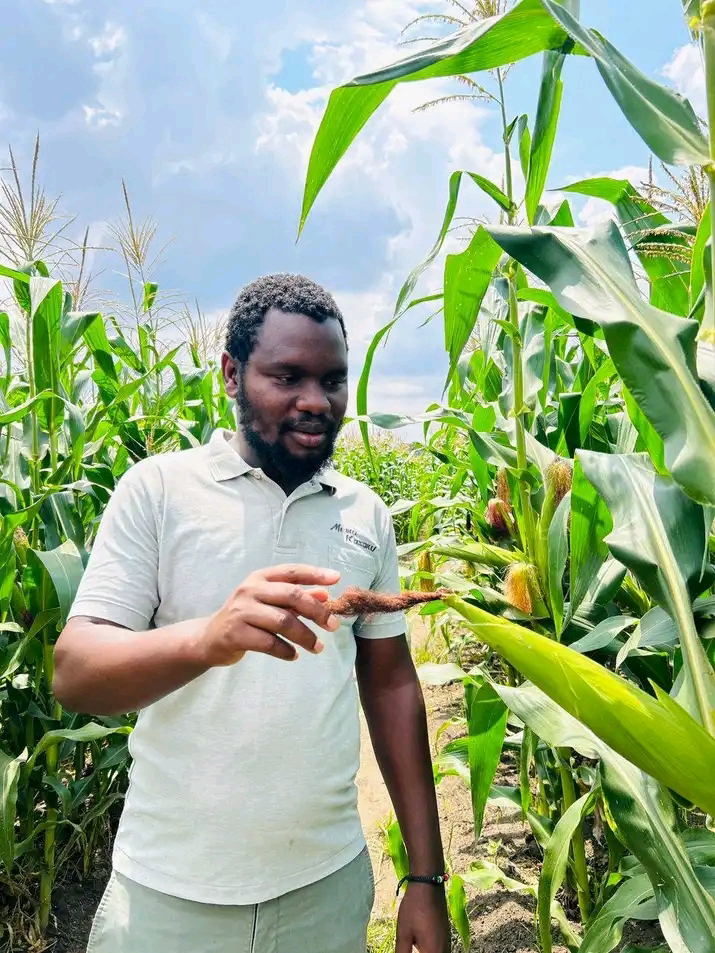REDSON KANDOZI
Agriculture remains the backbone of Malawi's economy, with approximately over 80 percent of the population dependent on farming activities.
Despite its central role, a report released by the Consultative Group on International Agricultural Research (CGIAR) in April this year, indicated that only about 30 percent of Malawi’s youth are involved in agripreneurship, a field that promises both economic stability and growth.
Perception challenges, lack of finance, access to commodity markets, access to land, and lack of readily available markets are the major setbacks to young people's involvement in agripreneurship.
Urunji Mezuwa, an agripreneur running the agricultural firm “Farming with Urunji,” challenges young entrants into the field to be innovative in order to counter these obstacles. In an interview, he says:
“Agripreneurs struggle because they venture into specific value chains without securing a market first. The idea is to look for unique markets and approach them directly rather than waiting for the markets to find them.”
Mezuwa, who recently collaborated with other farmers in mega rice farming of 100 hectares at their farm in Chipaika, Nkhatabay, believes agripreneurs should be familiar with export markets, including certifications, documentation, and all requirements for exporting.
Advising young people who are hesitant to join the field, he pointed out that they should realize that agripreneurship is not all about farming but that there are other roles they can play in the field.
“Young people should recognize that agripreneurship is not all about farming. There are other aspects like value addition as well as input supply, and they can choose which part they will play in the field.”
Mezuwa, however, thinks that it is beneficial for young people to find mentors in the field who will guide them step by step and help them avoid the feared uncertainties of agripreneurship.
Managing Director of Tazirwa Farm Limited, Anita Kulesi Pearson, echoes Mezuwa’s comments adding that young entrants in the field should have honest mentors who should be clear about both the failures and successes of this journey.
“There are a lot of success stories but with no realities. Young people should make sure to have honest mentors who will tell them the good and the bad of agripreneurship to avoid getting frustrated.”
Pearson, whose farm is located in Lunzu, Blantyre, and engages in both horticulture and animal husbandry, believes that to empower more people to join agripreneurship, agripreneurs should look beyond profits by ensuring they are making an impact in their communities.
“Success should be beyond the money in the bank. Most farms are in the village hence, agripreneurs should train locals on what they are doing. For example, we are into rabbitry, and we are training locals in rabbitry and also giving them rabbits and make them our outgrowers.”
She encourages young agripreneurs to take processing and value addition seriously as it enhances profits, giving an example of her farm, which processes and sells rabbit urine as fertilizer and pesticide.
Pearson, who recently partnered with Nthawi Farms in offering agribusiness trainings, believes networking can help young agripreneurs get exposed and increase their visibility.
“Networking is crucial to agripreneurs. It has helped us learn and unlearn other things. Meeting with people like Clara Kamlomo of Amazing B Projects has helped us in marketing our products, hence enhancing our visibility on the market.”
However, Founder and Chief Executive Officer of Nthawi Farms, Clement Taonani, believes the educational system in Malawi has failed to adequately prepare students for agripreneurship, hence the few young people in the sector.
“There is a lack of agripreneurship skills being offered at different educational levels. Agricultural education should go beyond traditional farming techniques and include business skills. We need business subjects offered from primary school to university, and they should be made compulsory.”
Owning over 175 acres of land, a farmhouse, maize mill, and a demonstration farm where people learn modern agriculture in Chitedze, Lilongwe, Taonani advises agripreneurs to adopt adaptive measures such as using biochar, a type of fertilizer that retains soil moisture and reduces evaporation.
“At Nthawi Farms, we implemented the use of biochar as a climate change mitigation approach. This organic fertilizer, helps retain moisture in the soil due to its sponge-like properties and has a long-lasting effect. Additionally, we use mulch from agricultural waste to reduce evaporation.”
With few women in agribusiness, Joy Chapeta, owner of Mcheneka Farms located in Lilongwe, T/A M'bwatalika, shares that there should be initiatives supporting women to have access to agricultural resources.
“Empowering women in agribusiness involves addressing challenges like limited access to land and tools. Forming cooperatives can offer support, bargaining power, and access to resources through partnerships with seed companies and agricultural organizations.”
Access to funding still remains one of the major hurdles for young agripreneurs, Chapeta who does both crop farming and animal husbandry shares her approach when it comes to financing her agribusiness.
“I use personal savings and reinvest profits from farming, I discourage loans due to high-interest rates. However, diversifying income with both crop farming and animal husbandry helps create a more stable revenue stream." she says.




تعليقات
إرسال تعليق